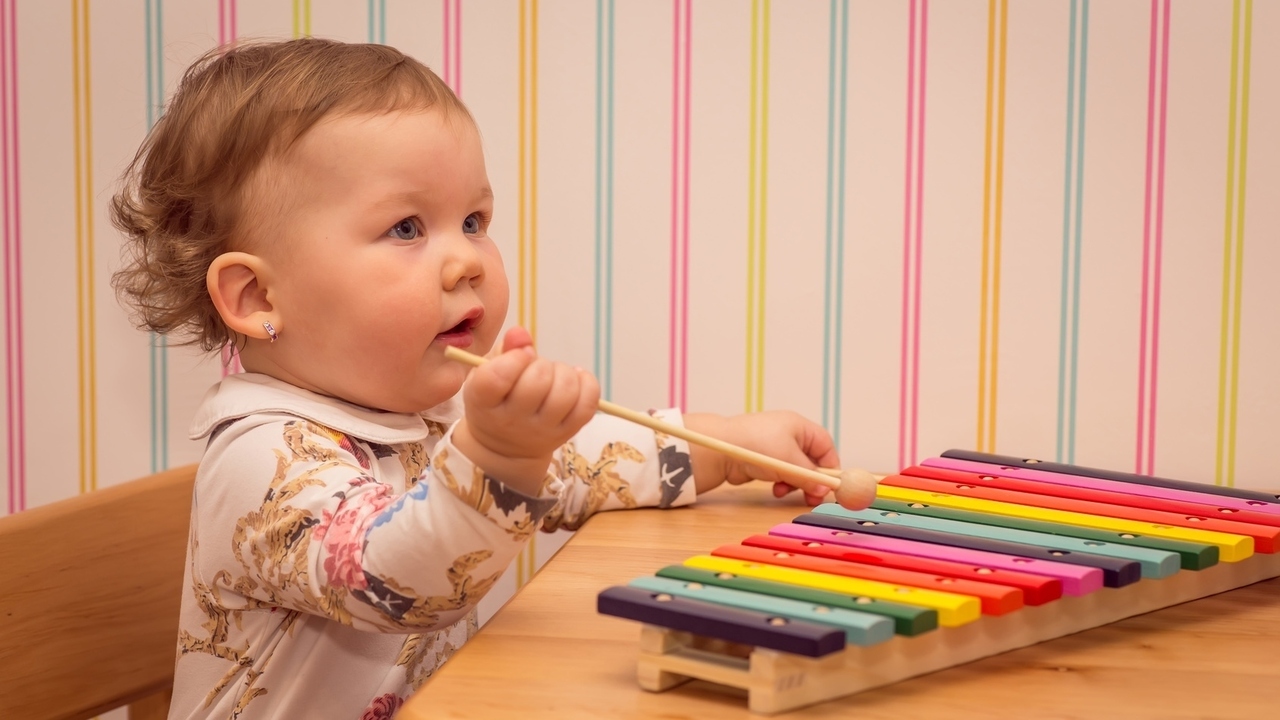 sumysh/Fotolia
sumysh/Fotolia
Rocking and tapping in time with music may help with your baby’s brain development, according to a new study from the University of Washington. Researchers at the UW’s Institute for Learning and Brain Sciences (I-LABS) believe that play sessions with music can help babies learn to process rhythms in both music and in speech.
The researchers studied how learning musical rhythms would affect young children’s ability to recognize differences in rhythms in speech.
"Infants experience a complex world in which sounds, lights and sensations vary constantly," said study co-author Patricia Kuhl, co-director of I-LABS.
"The baby's job is to recognize the patterns of activity and predict what's going to happen next. Pattern perception is an important cognitive skill, and improving that ability early may have long-lasting effects on learning."
The I-LABS study included 39 babies, all approximately nine months old. All the children and their parents participated in a month-long series of 12 play sessions that were each 15 minutes long.
Twenty babies were assigned to the music group. In each play session, researchers guided the parents to help their baby tap out the beats in time with recordings of children’s songs.
The researchers chose songs with beats grouped in three’s like a waltz, because they believed that rhythm would be more difficult for the babies to learn.
The remaining 19 babies and their parents participated in play sessions that required coordinated movements, but did not include music. Play objects included toy cars and building blocks.
"In both the music and control groups, we gave babies experiences that were social, required their active involvement and included body movements -- these are all characteristics that we know help people learn," said lead author Christina Zhao, a postdoctoral researcher at I-LABS. "The key difference between the play groups was whether the babies were moving to learn a musical rhythm."
Within a week after the study ended, all the babies came back to the lab to have their brain responses measured using magnetoencephalography.
MEG is a non-invasive testing procedure which allows scientists to measure ongoing changes in brain activity, millisecond by millisecond. It also shows what part of the brain is activated at a given time.
During the MEG testing, the researchers played recordings of speech and music for each baby while he or she was seated in the scanner. Each recording had a rhythm that was occasionally interrupted.
The research team studied two specific areas of each child’s brain associated with cognitive skills, including attention span and detecting patterns to see if the child reacted to the interrupted rhythms.
The study showed that the babies in the music group had stronger reactions to the interrupted rhythms in both brain areas, compared to the babies in the control group.
"Our study is the first in young babies to suggest that experiencing a rhythmic pattern in music can also improve the ability to detect and make predictions about rhythmic patterns in speech," Zhao said.
"Schools across our nation are decreasing music experiences for our children, saying they are too expensive," Kuhl said.
"This research reminds us that the effects of engaging in music go beyond music itself. Music experience has the potential to boost broader cognitive skills that enhance children's abilities to detect, expect and react quickly to patterns in the world, which is highly relevant in today's complex world."
If you have questions about your child’s development, talk to your health care provider.
Reviewed May 5, 2016
by Michele Blacksberg RN
Edioted by Jody Smith
Music improves baby brain responses to music and speech. University of Washington. Science Daily. Web. Retrieved May 4, 2016.
https://www.sciencedaily.com/releases/2016/04/160425161148.htm
What is magnetoencephalography (MEG)? Institute for Learning & Brain Sciences. Web. Retrieved May 4, 2016.
http://ilabs.washington.edu/what-magnetoencephalography-meg





Add a CommentComments
There are no comments yet. Be the first one and get the conversation started!